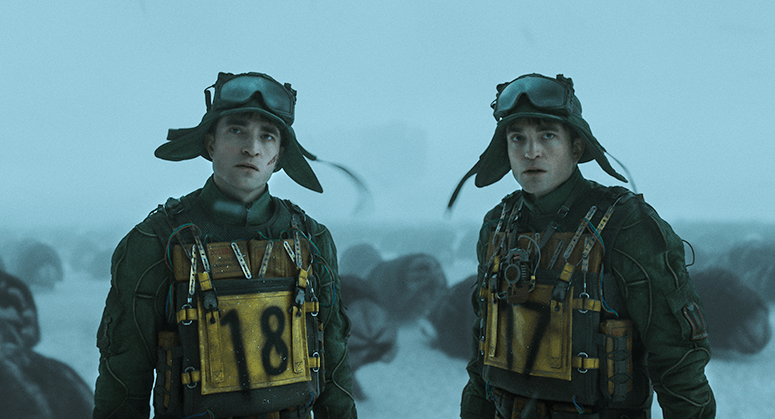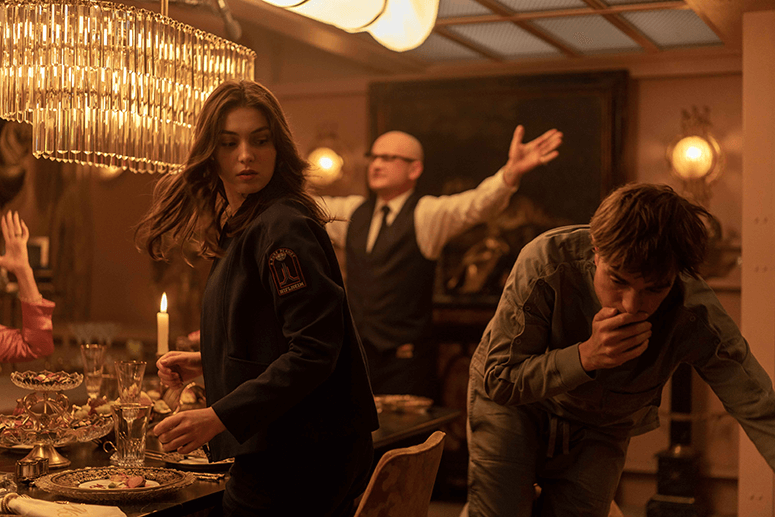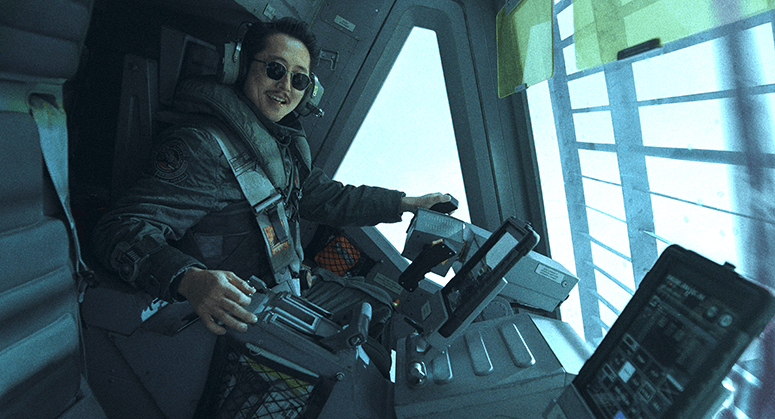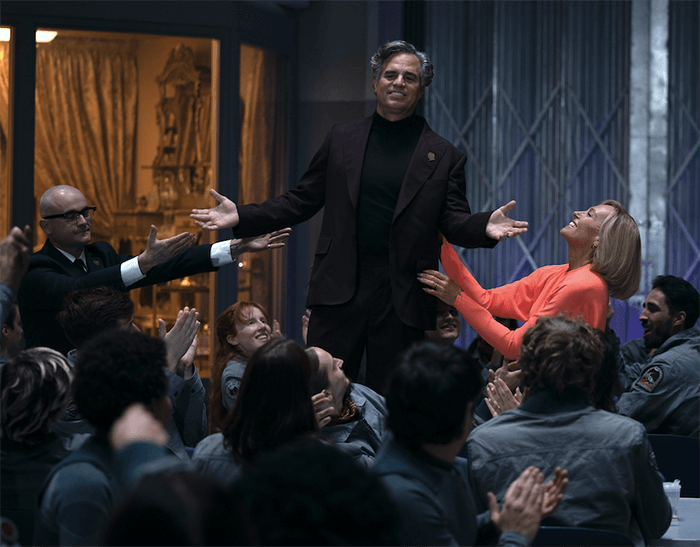A tale of two Mickeys
An off-world mining colony run by a megalomaniacal blowhard with a fervent religious following back on Earth and a fetish for space exploration. Robert Pattinson as a completely expendable cog in an increasingly oppressive capitalist system.
None of this stuff could ever happen, right? So Mickey 17, the latest Bong Joon-ho big-budget sci-fi satire (and his follow-up to Oscar winner Parasite) plays fast and loose with its premise, in which penniless Earthling Mickey Barnes (Pattinson) signs on as a corporate guinea pig for scientific experiments in the booming world of space colonization.
Mickey’s got it tough, being inserted into certain-death alien landscapes and repair jobs where he’s bound to die, just so data gatherers can game out the next mission on the human colony of Nilfheim. He’s literally an “Expendable” whose neuro-data and DNA is collected in a brick-shaped external drive which can then print out a new “Mickey” when he (inevitably) dies, each new body squeezed out like a sausage falling to the floor with a grotesque and squishy ploop.

The thing is, Mickey, our hero and narrator, feels each death: It’s not something he looks forward to, but they keep bringing him back. Fortunately, he has the love of Nasha (Naomi Ackie) to keep him warm between deaths.
This Nilfheim colony is led by Kenneth Marshall (Mark Ruffalo), a telegenic but second-rate politician back on Earth who nevertheless gets a kick out of acting like a tough guy and exerting his ego-fueled will whenever possible. His wife (Toni Collette) particularly prizes cutting up and Cuisinarting alien life forms and turning them into exotic culinary sauces.
Again, any resemblance to any real people back on Earth who view the human race as some kind of pole-vault into the future or the universe as completely exploitable is coincidental, a work of complete fiction.

Bong’s expensive-looking satire is based on Edward Ashton’s 2022 sci-fi novel Mickey7, and it plays at times like Luc Besson’s The Fifth Element or Terry Gilliam’s Brazil, packed with bonkers visuals and side characters (the Pigeon Man, for instance). We know where the director’s sympathies lie from Parasite and earlier examinations of the class struggle in Snowpiercer and Okja, the Bong-written Netflix film about an enormous pig sought by the evil meat industry. He’s pro-humanity, perhaps not so much pro-human behavior. The enemy is us, as Pogo used to say.

Parasite seems almost subtle and nuanced next to Mickey 17, but these are not subtle and nuanced times. Ruffalo plays it broad, but things are pretty broad on the ground these days in real life. Pattinson has tremendous fun playing not one, but two Mickeys: the first a muckle-mouthed but goodhearted doofus (inspired by Ren or Stimpy, we’re not sure) who just wants to do the right thing, but keeps getting fed into the meat grinder; the other, Mickey 18, a motor-mouthed aggro version who thinks nothing of stealing Nasha away and plotting to assassinate Marshall. Along for the ride is Mickey’s old Earth pal Timo (Steven Yeun), a pilot with smuggling tendencies and no particular loyalties other than to himself; and Anamaria Vartolomei as a security agent who’s also into Mickey.
How this all plays might depend on how effective satire is these days. We live in times when reality laps satire at a strong clip (it’s why SNL can’t really keep up with the funny anymore, because the zone is constantly flooded with actual bizarre, surreal events). The concept of tapping people’s neural data is, at the moment, being peddled by a certain Musk company called Neuralink, and his fetish to colonize Mars (SpaceX) would no doubt be carried out with the same delicacy he takes to cutting federal workers and programs in America—with a chainsaw.

(Nicole Collette) and sycophant staff
Meanwhile, the second rater in charge of Nilfheim is a caricature of strength, with fake teeth and hair, an obnoxious fascination with his own every utterance, and a demand that he be documented by camera at every moment. Again, all coincidental; no particular actual person, living or dead, in mind here.
I remember taking a college course on Comedy and Satire in which we examined what distinguishes the two genres. Comedies typically end with a marriage, after much kerfuffle (think Shakespeare). Satire has a more needle-like mission in mind (think Jonathan Swift’s Gulliver’s Travels): It’s comedy’s darker cousin, exposing human folly.
In short, comedies make you feel, while satires make you think. But we are meant to feel something when Mickey 17 sits down to a prized steak dinner with Marshall and his wife in their grotesquely opulent quarters, or when he’s surreptitiously given nerve agents to test their effectiveness, only to watch him die again and again and get printed anew, each time a little more diminished. We’re meant to feel sympathy, and maybe outrage, and Pattinson’s performance here does reach for that. But can recent satires like Don’t Look Up and Mickey 17 actually change the world, or at least our thinking?
Where satire may fall short is in landing the tragic dimension, and while Mickey 17 does go for that dimension, it’s us, left in the real world, who must contemplate the actual tragedy in our midst and think about actually doing something about it.


